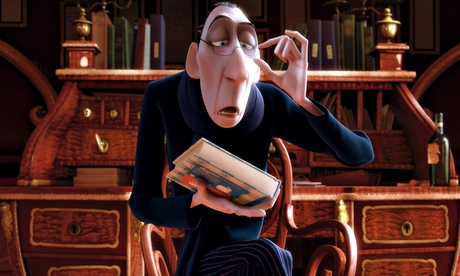
A piece in yesterday’s Observer by Peter Preston, a former editor of the Guardian, noted that various restaurant critics – namely AA Gill of the Sunday Times, Giles Coren of the Times, Marina O’Loughlin of this paper, and Jay Rayner of the Observer, had all disagreed profoundly with each other about the same restaurants – and in a couple of cases, the same dish at the same restaurant. He concluded that “restaurant reviewing has … become a series of elegant essays too frail to chomp. It’s a style, a prevalent entertainment: but also not much of an answer to the most basic question of the lot: … was the blinking mousse set, or not?”
Leaving aside the question of whether you can describe any of these critics’ styles as “elegant” or “frail” – none of them, after all, are noted for the bashfulness with which they advance their opinions – what we have is another gust rocking what many see as the rickety vessel of criticism as a whole. If critics cannot even agree among themselves about a mousse (or, as it happened in the instances cited, a lamb shank), then on what basis can they be considered authoritative, or trustworthy?
It is the kind of opinion I have often heard myself: “What makes your opinion more worthwhile than mine?” It is, after all, just an opinion. All the critics hated Fifty Shades of Grey in all its manifestations; and yet the cash registers groan with the amount of money the public has forced into them to see the film or read the book. What do the critics know? And why are they still employed?
This has been, I confess, a question that has kept me awake at night; either with anxiety, or with a list of belated rejoinders, among whose strongest contenders was something along the lines of: “OK, if you’re so smart, why don’t you have a go?” Looking at some of the reviews submitted by the public on various literary sites – as books are my area of expertise and/or experience – has led me to realise that the days of the professional critic are not necessarily numbered.
The most succinct comment on the matter, and one which is relevant across the board, and not just to restaurant reviewing, was quoted by Preston in his own piece: “I do not expect restaurants to be interesting … It is my job to be interesting.” That was what Giles Coren had to say, and although we have had our differences in the past – in fact, I have been rather rude about him in print, almost, but not quite, to the point where I feel a little guilty about it – he speaks for the profession as a whole, whether we’re talking about lamb shanks or prose style. The critic’s duty is twofold: to be honest, and not to bore the reader. And if this means that sometimes the critic has to resort to a certain – how best to put this? – robustness of style, then so be it. (Not that you have to be robust. You can also be – to use one of those attributes that Mr Preston considers, for some reason, to be a bad thing – elegant.)
There’s a famous quote, variously attributed, that says “writing about music is like dancing about architecture”. Sometimes it’s “talking” rather than “writing”. The objection is the same: using language when writing about the non-linguistic is a category error. And there are many writers who would say that letting a sloppy critic loose upon their own carefully wrought works is a similar disgrace.
It’s a rebuke that bleeds across the spectrum of human endeavour, whether the human is trying to please the eye or the taste buds, and the kind that Samuel Johnson was obliged to contradict when he said that “you may abuse a tragedy, though you cannot write one. You may scold a carpenter who has made you a bad table, though you cannot make a table.” The extraordinary thing is that Dr Johnson said that something like a quarter of a millennium ago, and people are still having problems absorbing its message.

